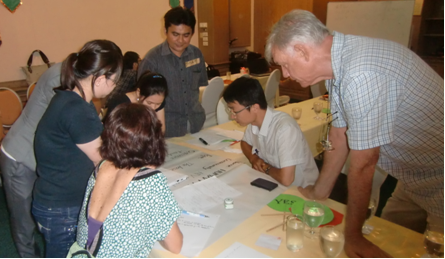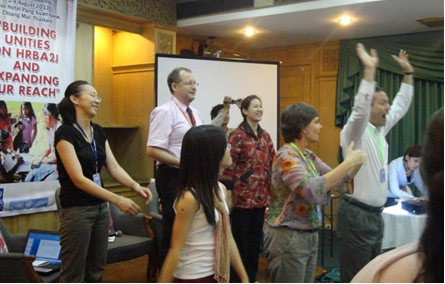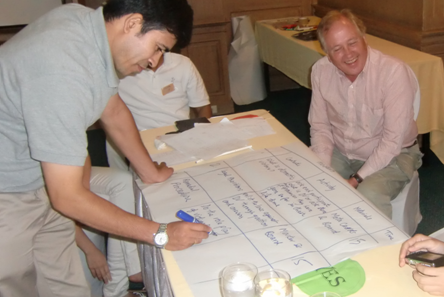Building Unities… Expanding Our Reach:
HRBA2J-Asia 1st General Assembly in August, 2011
 BABSEACLE co-sponsored and facilitated the Asian Consortium on Human Rights Based Approach on Access to Justice (HRBA2J) 1st General Assembly on August 2-4, 2011 in Chiang Mai, Thailand. Celebrating the theme of “Building Unities on HRBA2J and Expanding Our Reach,” the General Assembly brought together government leaders, members of academia, and civil and social justice advocates.
BABSEACLE co-sponsored and facilitated the Asian Consortium on Human Rights Based Approach on Access to Justice (HRBA2J) 1st General Assembly on August 2-4, 2011 in Chiang Mai, Thailand. Celebrating the theme of “Building Unities on HRBA2J and Expanding Our Reach,” the General Assembly brought together government leaders, members of academia, and civil and social justice advocates.
The three-day consortium started off with a keynote speech from Mr. Ariranga Govindasamy Pillay, the former Chief Justice of Mauritius  and current Chair of the United Nations Committee on Economic, Social and Cultural Rights. In his keynote speech, Pillay addressed the different issues surrounding access to justice in Asia and on an international scale.
and current Chair of the United Nations Committee on Economic, Social and Cultural Rights. In his keynote speech, Pillay addressed the different issues surrounding access to justice in Asia and on an international scale.
Over the next two days, participants shared paper presentations on different access to justice issues in the region, such as population movements, cultural rights, climate change, approaches, instruments and mechanisms. Finally, the participants were given the opportunity to visit one of three different field trips: Wildflower  Home, Best Friend Library, and a local Thai court.
Home, Best Friend Library, and a local Thai court.
Director Bruce Lasky said BABSEACLE was thrilled to co-host HRBA2J’s 1st General Assembly in Chiang Mai. “It was truly inspiring to be among such like-minded advocates to build a stronger support network,” he said. “This opportunity allowed our organization to present to the Consortium our unique approach to clinical legal education.” BABSEACLE also conducted a workshop at the consortium, at which participants got to experience its interactive CLE methodology.
The HBRA2J-Asia is a network of national and academic institutions and civil society organizations in Asia working in the field of civil rights and/or access to justice. HRBA2J-Asia seeks to promote the application of its human rights based approach (HRBA) in the design and implementation of access to justice (A2J) programs by creating a community of practice through capacity building and advocacy.
